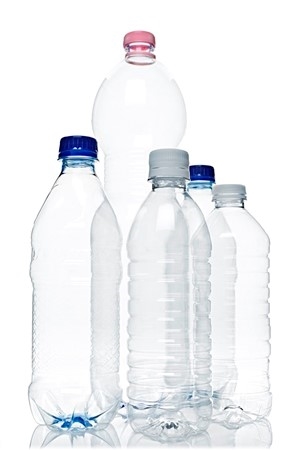 hnology for the industrial production of polyethylene terephthalate (PET) polyester is now being adopted around the globe as PET manufacturers and processors seek to eliminate the use of the heavy metal catalyst antimony oxide.
hnology for the industrial production of polyethylene terephthalate (PET) polyester is now being adopted around the globe as PET manufacturers and processors seek to eliminate the use of the heavy metal catalyst antimony oxide.The technology was developed by Catalytic Technologies Ltd (CTL), a company established in late 2010 on Teesside in the UK. To date the company has invested over GBP 1M on research and development and in 2013 it launched its patent pending UP-Technology platform which exhibits performance unlike any other PET catalyst. UP is a catalyst technology platform that allows CTL to produce catalysts with unique chemical composition and that eliminates undesired side reactions in this application.
In addition to eliminating antimony oxide, the new catalyst offers a range of other benefits. These include high polymer thermal stability, improved brightness and clarity owing to lower impurity content, a significant net reduction in the overall process energy required to produce plastic packaging and, most significantly, lighter bottles without compromising on bottle strength.
The company’s unique UP-Technology platform is being exploited on industrial scale plants in Asia with further commercial trials scheduled and worldwide pilot unit testing on-going. The success is due in part to the decision to invest in a continuous pilot unit catalyst trial on Uhde Inventa-Fischer’s state of the art polyester 2R-MTR® pilot plant. The trial enabled substantial testing of CTL’s new UP-catalysts by independent PET polyester production experts to demonstrate the benefits of the catalyst technology compared to the industry antimony reference.
CTL’s new products target the markets for mainstream, high intrinsic viscosity PET resin and sheet used for the production of bottle and packaging plastics. Their use is currently greater than 30 million metric tonnes per annum.
Dr Alan Cooper, Technical Director, said: “The eco-credentials of our new UP-Technology are indisputable. The UP Technology platform can be modified to act as a drop-in replacement to current heavy metal catalysts for all PET production processes without any compromises.
This new UP-Technology benefits everyone along the supply chain; PET resin manufacturers, resin processors and the packaging consumers. Importantly, all of these wide ranging advantages can be achieved without an increase in cost to the consumer.”
CTL have set the ambitious, but in Dr Cooper’s opinion “achievable” business target of taking over 50% of the PET resin and sheet market within the next five years. CTL now aims to apply their innovative and ground-breaking technology platform into other organo-titanium and zirconium areas, the timing of which has never been of greater significance as the use of toxic, restricted availability and often expensive alternatives comes under scrutiny.
Queen’s Award for Enterprise 2014
CTL has received the Queen’s Award for Enterprise 2014, in the category Innovation. The Award, which recognises the commercial success of the company’s new polyester catalyst business, confirms that CTL is currently one of the UK’s most inventive businesses.
The Queen's Awards for Enterprise are presented annually for outstanding achievements in the categories of Innovation, International Trade and Sustainable Development. Winning organisations must demonstrate the highest levels of corporate excellence combined with significant advances in performance and commercial success – making a Queen’s Award the ultimate business accolade.
Commenting on the Award, Dr Alan Cooper, Technical Director, said: “Winning the prestigious Queen's Award is a tremendous achievement for our company. It rewards the dedication of all our employees and demonstrates that we produce some of the world’s most innovative new products. This certainly enhances our position as innovation leader in the field of titanium and zirconium chemistry.”





